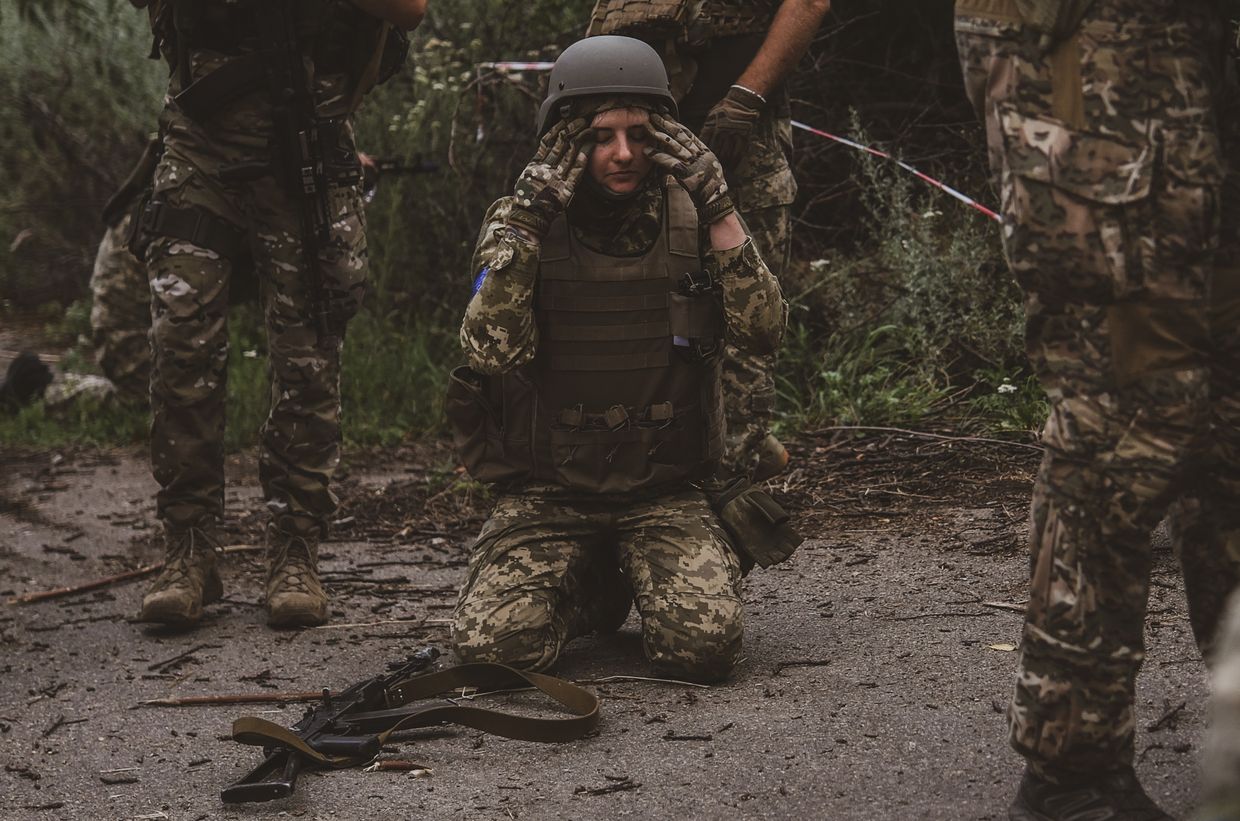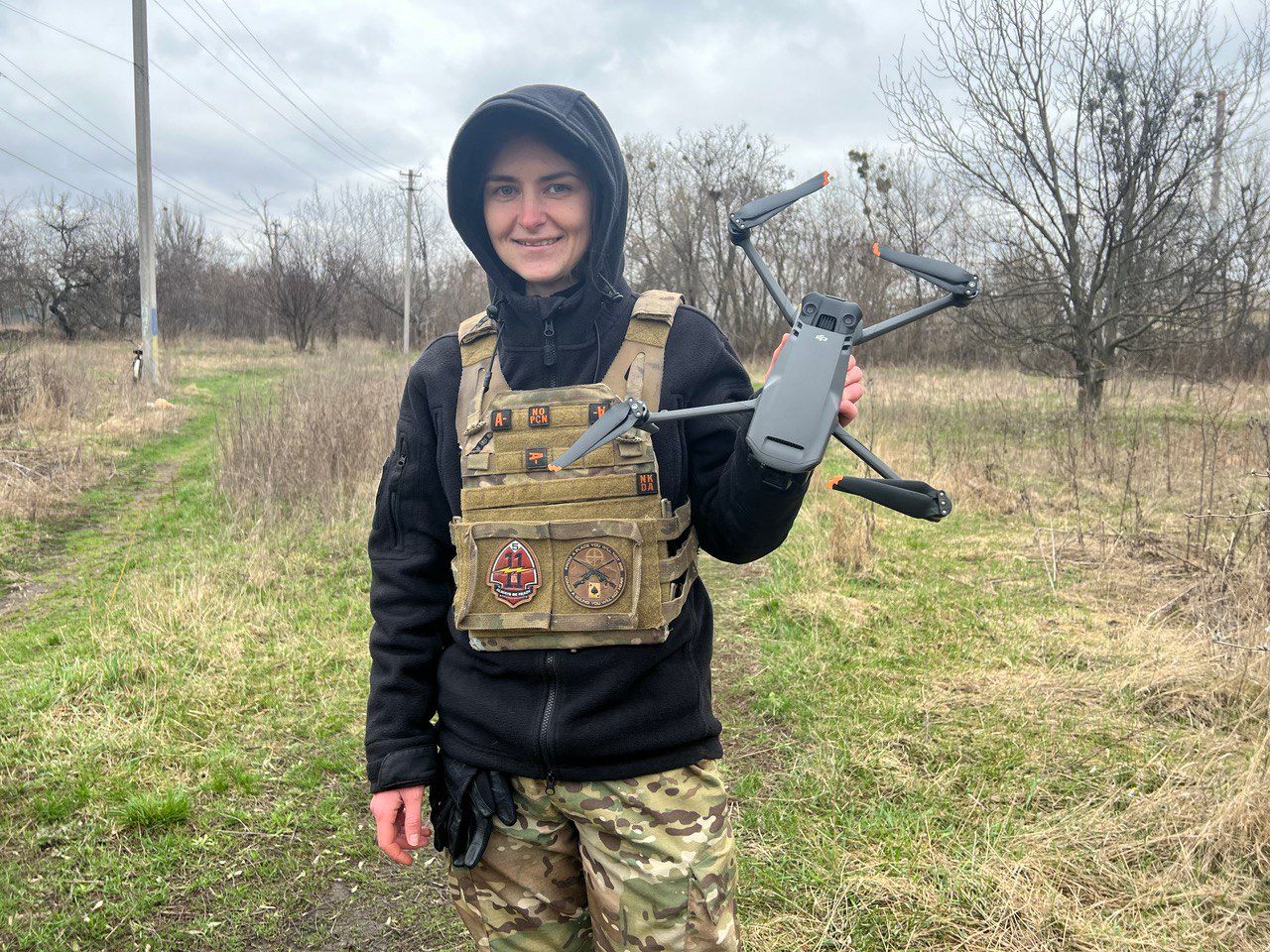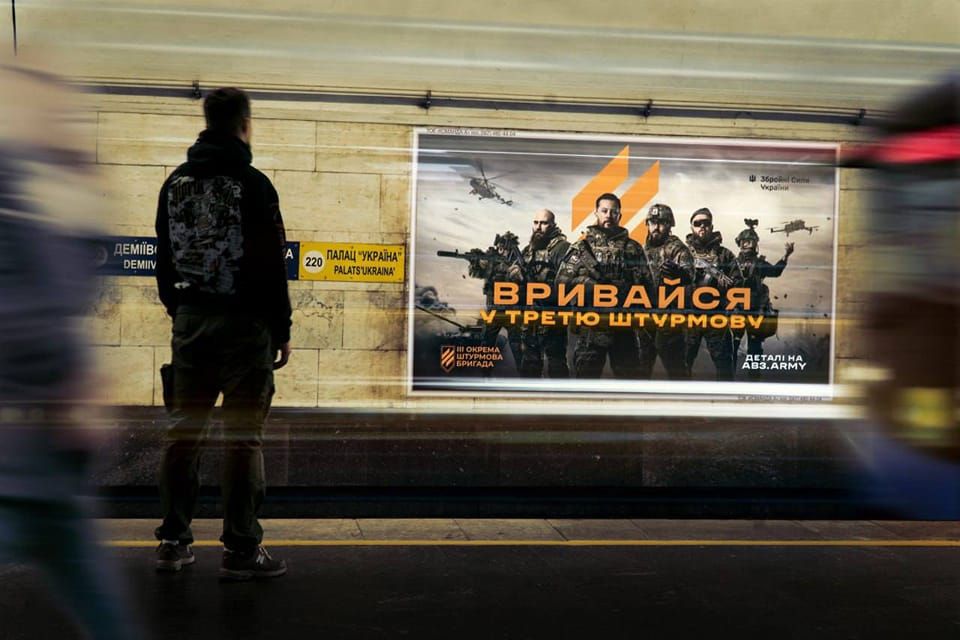'I wanted to save lives.' How pregnant medic kept working on front line amid heavy combat
In between rescue missions in eastern Ukraine, in the midst of heavy combat, Yuliia Romanenko got some elating news: she was expecting a child.
But she did not even consider quitting her job as a combat medic with the 67th Mechanized Brigade, which was fighting near Bakhmut, the hottest front at the time.
"I faced a dilemma: how to combine (pregnancy) with (military) service, with the desire and goal that brought me to the army," Romanenko told the Kyiv Independent.
"I joined the military with one aim — to save people. I did not want to stop."
Romanenko, 33, continued evacuating the wounded weeks into her pregnancy and saving lives close to the front line until the eighth month. The military then transferred her to Kyiv, where she helped rehabilitate veterans.
Against the odds, Romanenko's story has a happy ending. On Dec. 29, fellow combat medic husband by her side, Romanenko gave birth to a beautiful baby girl, whom she named Lina.
'Not enough'
Romanenko, who’s had careers in tourism and regenerative medicine, sought ways to help her country since day one of Russia's full-scale invasion in February 2022, saying "I knew I couldn’t just leave.”
She and her friends started donating blood to one of the capital's hospitals. But the urge to do more brought her to Come Back Alive, one of Ukraine’s best-known military support foundations. Her job was to field questions from soldiers about the status of the gear they had requested — often telling them they had to wait for it was tough.
Romanenko soon left the foundation and did some fundraisers for the military with her friends. But she did not feel she was helping Ukraine as much as she could. She wanted to save lives.
In late May, Romanenko joined the army as a volunteer, training in tactical medicine and casualty evacuation at the Ukrainian Volunteer Corps.
"It was very intense training," Romanenko says. "But it was directly relevant to the reality we’ve faced at the stabilization point, during evacuation and combat."
As part of her preparation, she also had to do physical fitness training, learn small unit tactics and how to shoot a firearm. She was then assigned to the newly-created 67th Mechanized Brigade towards the end of 2022 and deployed to Luhansk Oblast in the east of Ukraine.
"It was quite intense." On Romanenko’s first mission, she was supposed to spend one day at the front but she was stuck there for three days as frequent attacks made returning too dangerous. The ensuing missions were no less demanding.
But by her side was a man who helped her shoulder the burden — her boyfriend, the combat medic Mykyta.
A love story
They met during training. She was attracted to his dependability and because he could "act rather than talk." Working shoulder-to-shoulder with her boyfriend and having his support was very helpful in coping with wartime military life.
Mykyta proposed while they were on leave, walking along the banks of the Dnipro River in Kyiv.
"He asked me to get some heart pills out of his pocket," Romanenko laughs. "I did not understand what was going on. He was so young, why did he suddenly need heart pills?”
Confusion turned to joy — the meds turned out to be an engagement ring. Romanenko said yes. They were married in Izium, a city in eastern Kharkiv Oblast, during their deployment. Like with many front-line weddings, it was just the two of them, granted a day’s leave to tie the knot. Both wore their military uniforms.
The day’s happiness lasted until they returned to their unit and heard the news.
"The combat situation was very unfavorable that day, and our unit suffered losses," Romanenko says. "We were devastated.”
Little life
The war’s brutal uncertainty made the couple decide to try for a child without delay.
"(Finding out about pregnancy) was a gift for us on our birthdays, April 9 and 10," Romanenko says. "It was a feeling of incredible happiness and euphoria."
Even as she rejoiced, she realized that she did not want to quit her job. At the time, their unit was stationed in a "relatively calm" area near the border with Russia in Kharkiv Oblast. That soon changed. She was two months pregnant when their unit was deployed near Bakhmut.
"I continued to participate in the evacuation. I really wanted to do that. I even insisted not to be taken to the rear, despite my circumstances," she says. Romanenko did not go into Bakhmut itself, instead transporting soldiers away from a nearby casualty stabilization point.
The shelling never stopped throughout her deployment; it gradually reduced the city into ruins. Being needed gave her the strength to keep going.
"From Bakhmut, they brought wounded soldiers to us, and I tried to do my best to fulfill my role as a medic," Romanenko recalls. "It was challenging because the evacuation could take place… when there was at least some minimal corridor free from shelling. So more and more wounded soldiers gathered, and they had to be evacuated in large groups."
Though Romanenko never lost anyone she had personally been transporting, learning of losses was heartbreaking. “The better you know a person, the more it hits you," she says, pain in her voice. She was also worried for her husband, who went on missions into the city.
She was still in the combat zone when she felt the baby kick for the first time: "A little life was growing inside me." But Romanenko only agreed to stop working entirely when she passed the ninth month of her pregnancy.
Brave little girl
Romanenko gave birth on the same day that Russia launched its largest ever air attack against Ukraine, hitting the capital and other cities and killing dozens of civilians.
She did not hear the explosions; her husband filled her in later after he watched it happen on his way to the hospital. She had other things to worry about, like the difficult labor. The baby had trouble breathing when she emerged. While opening her airways, the doctor asked Mykyta if they had chosen the name already.


"He said: Maybe Lina, but we are not sure yet.” The name was inspired by prominent Ukrainian author Lina Kostenko. "As soon as the name Lina was said, our little one started screaming."
"When I heard her first scream, I could not help but cry," Romanenko says. "With that first scream, you realize that you are a mother and your child is alive, and you are alive too. I wish for my daughter to be as artistic, open-minded, and intelligent as Kostenko.”
Romanenko hopes that the war is over by the time she’s done with maternity leave. She wants her daughter to grow up in peace.
But when Lina is old enough, she’ll hear all of her mother’s front-line stories, including the one about how she came to be.
Note from the author:
Hi! Daria Shulzhenko here. I wrote this piece for you. Since the first day of Russia's all-out war, I have been working almost non-stop to tell the stories of those affected by Russia’s brutal aggression. By telling all those painful stories, we are helping to keep the world informed about the reality of Russia’s war against Ukraine. By becoming the Kyiv Independent's member, you can help us continue telling the world the truth about this war.














